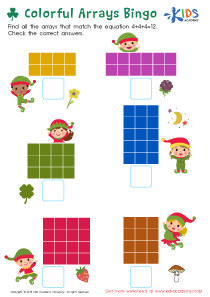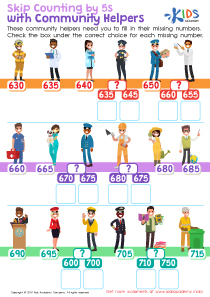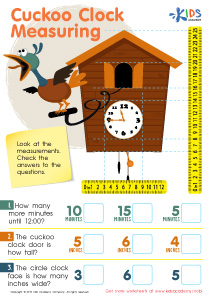Math skills improvement Grade 2 Math Worksheets
3 filtered results
-
From - To
Enhance your child's math skills with our Grade 2 Math Worksheets designed for skill improvement! Tailored for second graders, these engaging worksheets target key math concepts, making learning fun and effective. From addition and subtraction to basic geometry and measurement, our resources aim to build a solid foundation in mathematics. Each worksheet encourages critical thinking and problem-solving, fostering a positive learning experience. With colorful visuals and clear instructions, your child will stay motivated while mastering essential math skills. Perfect for classroom use or at-home practice, our worksheets will help your young mathematician excel and gain confidence in their abilities. Explore the complete collection today!
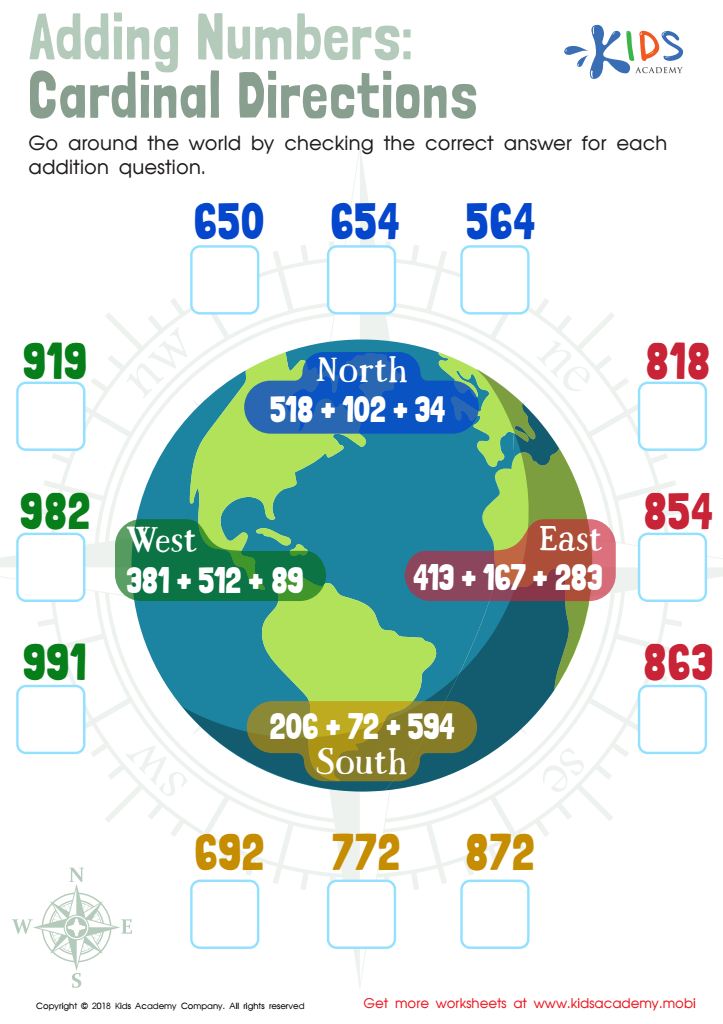

Adding Numbers: Cardinal Directions Worksheet
Parents and teachers should prioritize the improvement of Grade 2 math skills because these foundational skills are critical for a child’s overall academic success and confidence. In Grade 2, students build on their understanding of basic arithmetic—addition, subtraction, and the introduction of simple multiplication and division concepts. Mastery of these skills not only facilitates advanced mathematics but also engenders logical thinking, problem-solving abilities, and reasoning skills that are essential in everyday life.
Early math proficiency is linked to later academic performance, making it vital for parents and teachers to provide support and resources to foster these skills. Moreover, students who struggle with math at this stage can develop a negative mindset towards the subject, potentially leading to persistent issues in later grades. Recognizing and addressing these challenges early can help instill a positive attitude and a growth mindset in children, encouraging them to view mathematics as an engaging and fun subject.
Furthermore, math skills contribute to real-life applications, from handling finances to understanding mathematical concepts in other subjects like science. By actively participating in and promoting math skill improvement, parents and teachers play a crucial role in helping children develop a strong foundation for their future academic and personal achievements.
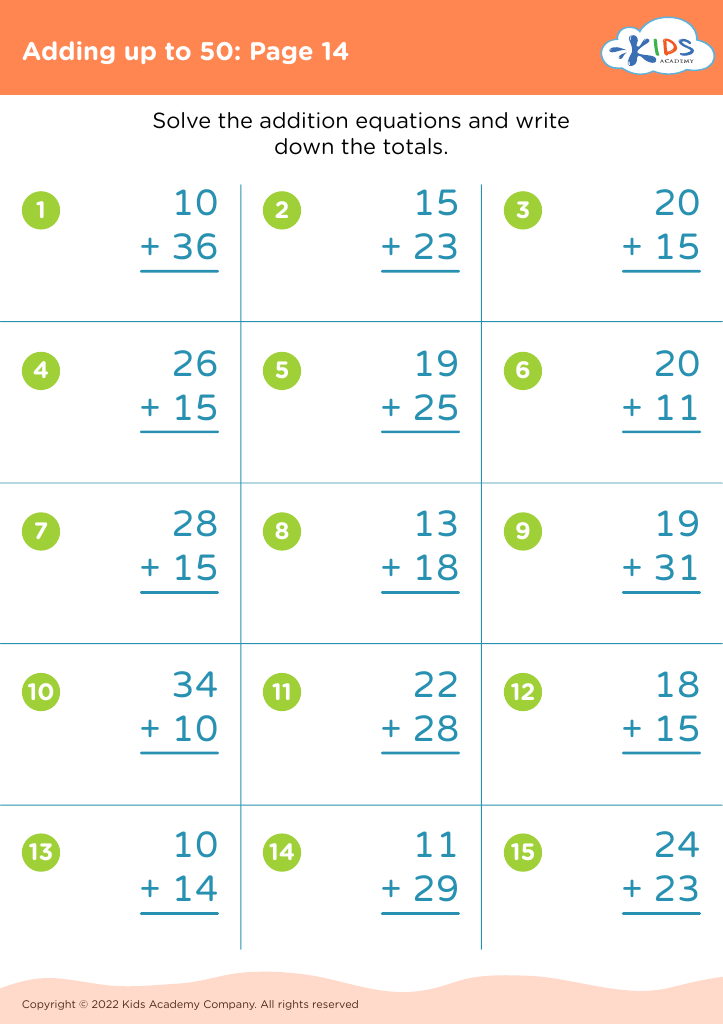

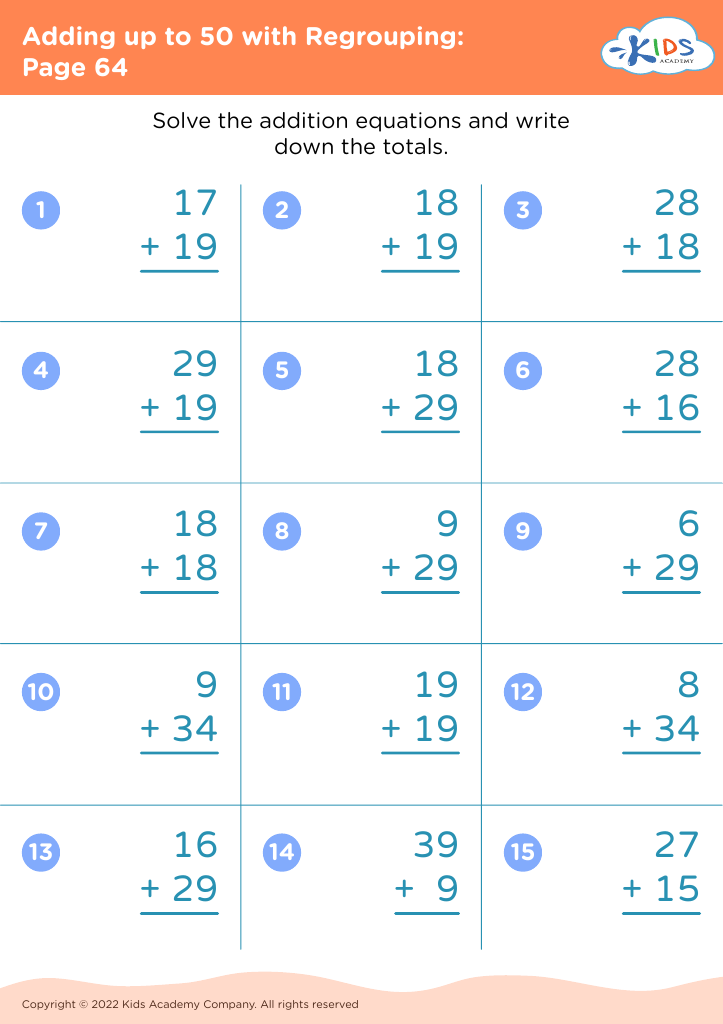
 Assign to My Students
Assign to My Students










